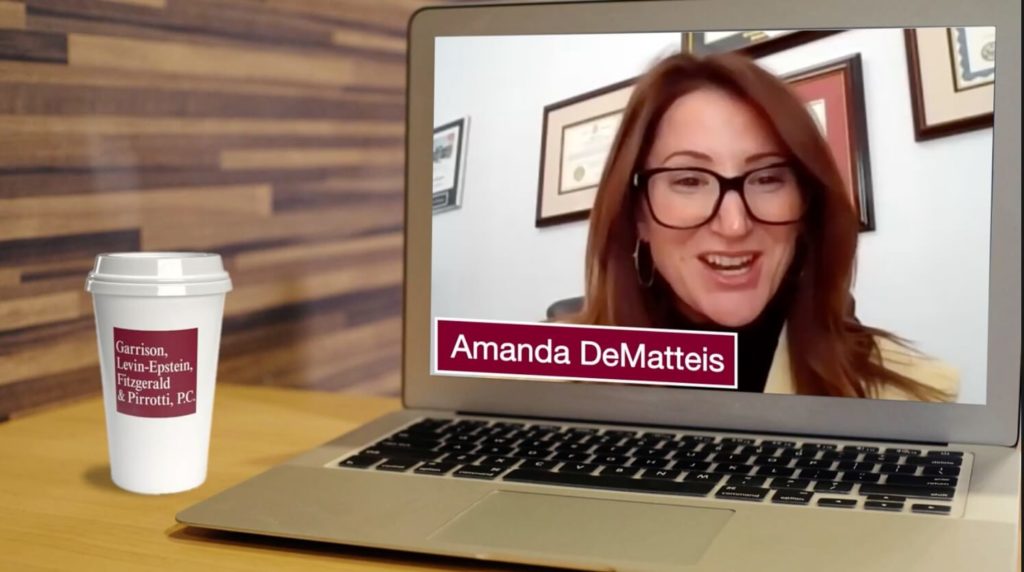Amanda DeMatteis: Hi, Josh!
Josh Goodbaum: Hi, Amanda! What are we talking about today?
DeMatteis: I thought we could talk about the Connecticut Family and Medical Leave Act. This is our state counterpart to the federal Family and Medical Leave Act, and there’s been some really significant changes that impact a vast majority of Connecticut employees, and I thought we should tell our viewers about that.
Goodbaum: Yeah, this is great news for Connecticut employees, and there’s really two changes here.
So, the first is to the Connecticut FMLA itself. The FMLA, both federal and state, is a law that allows qualifying employees to take unpaid leave to care for their own or a close family member’s serious health condition without losing their jobs. Basically, you get to take some time off to care for yourself or a family member and then come back to your same job that you had.
There are two changes: there’s more leave, and it applies to more employees. So, the amount of leave – before 2022, the Connecticut FMLA entitled employees to 16 weeks of leave every two years, so every 24 months. Starting January 1, 2022, the law now provides for 12 weeks of leave per 12 months, so that would be 24 weeks every 24 months.
Next, with respect to the employees it applies to, and this is a huge expansion: Before 2022, in order to get Connecticut FMLA, your employer had to have 75 or more employees within 75 miles. That basically excludes every small or medium-sized company in Connecticut, and you personally had to work 1,000 or more hours in the previous 12 months. So it excludes basically part-time people. But that changed. Starting January 1, 2022, it now applies to almost every employee in Connecticut who has worked for the last three months – so a huge expansion of eligibility.
What hasn’t changed under the Connecticut FMLA is the nature of the leave – it is unpaid leave. But, and this is change number two, starting January 1, 2022, Connecticut launched the Connecticut Paid Leave Program. This program provides replacement pay for people who stay home from work sick and don’t get paid for it. To be clear, this is not double-dipping; you don’t get to take paid sick time from your employer and also get money from the government. It’s just a replacement of your income. You’ve got to stay home for a qualifying reason, which basically overlaps with the reasons under the Connecticut FMLA, though there are some slight differences. This likely includes, importantly, employees who stay home from work because they test positive for COVID or they’re caring for a family member who tests positive for COVID.
There are going to be questions about this. It’s a brand new program, so if you have questions, we suggest you contact the Connecticut Paid Leave Authority. The best way to find them is on Google. Google ‘Connecticut Paid Leave Authority’ – tons of frequently asked questions there, and they have contact information to resolve your issues.
So, to sum up here, there’s more entitlement to job-protected leave, and there’s the ability for replacement of income for workers whose job-protected leave is unpaid. So it’s two great developments for Connecticut workers, and we wanted to tell you about it.
DeMatteis: Great expansion of rights – thank you so much for that summary. Of course, any other questions, give us a call and reach out. Thanks so much for watching! Take care.

